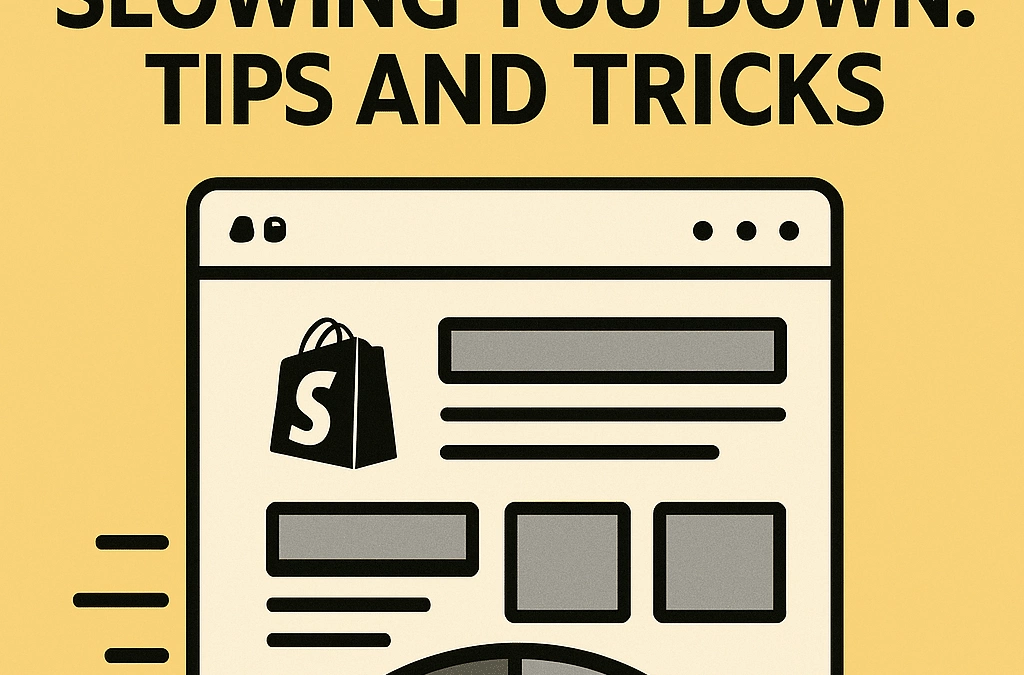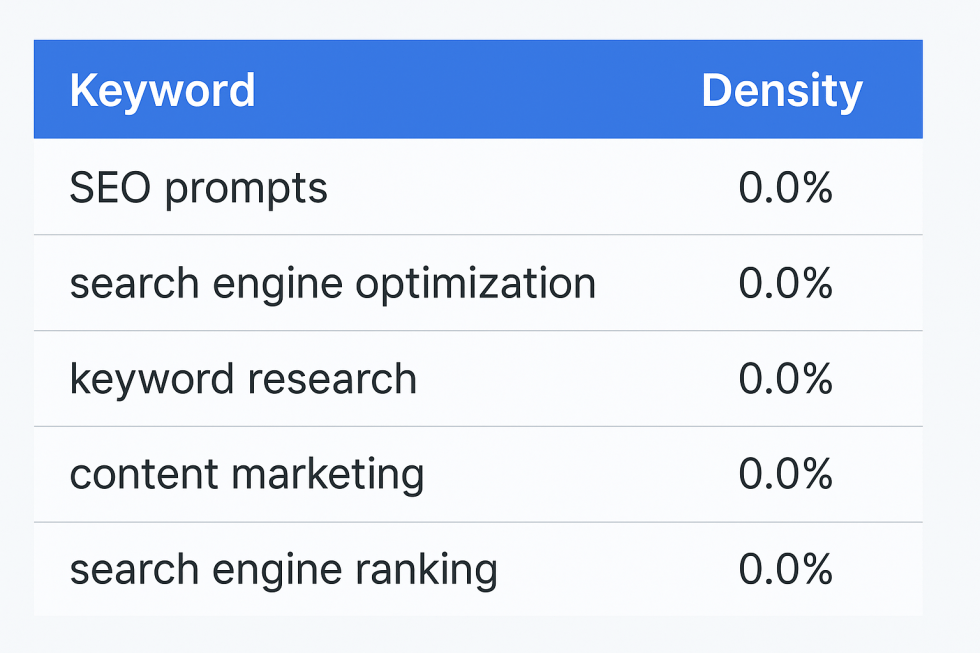
Why Your Shopify Theme Might Be Slowing You Down: Tips and Tricks
In the fast-paced world of eCommerce, every second counts. A slow-loading Shopify store can mean the difference between a successful sale and an abandoned cart. If your store isn't performing as quickly as it should, there's a high chance your Shopify theme is to blame. While themes are essential for creating a beautiful and user-friendly store, they can also introduce performance bottlenecks.
Let’s unpack exactly how your theme might be slowing you down—and what you can do about it, including how to use Speed Me Up by BKThemes for a faster, more profitable Shopify store.
Understanding Shopify Theme Architecture
What is a Shopify Theme?
A Shopify theme is a pre-designed template that controls the look, feel, and functionality of your store. It consists of HTML, CSS, JavaScript, and Liquid (Shopify’s templating language) files. These files work together to create the visual experience for your customers.
How Themes Impact Website Performance
While themes can make your store visually appealing, they can also affect load times. Every button, slider, or image adds to your website’s codebase. If not optimized, themes can introduce bloated code, redundant scripts, and poor asset handling, making your site sluggish.
Shopify Liquid vs JSON Templates
Shopify recently introduced JSON templates, which are lighter and faster than traditional Liquid templates. Themes using outdated Liquid structures may experience performance issues, especially on mobile devices.
Common Theme-Related Speed Issues
Excessive JavaScript and CSS Files
Many themes come packed with features like animations, sliders, and pop-ups—each requiring its own JavaScript or CSS file. If these files aren’t minified or are loaded all at once, they can dramatically increase page load time.
Unused Theme Code and Bloat
Some themes include code for features you never use. This unused code still gets loaded, contributing to slow performance.
Large Image Files and Poor Media Optimization
High-resolution product photos are essential, but if your theme doesn’t compress them properly, they can slow down your page drastically.
The Role of Design in Page Load Speed
Animation Effects and Visual Elements
Animations can enhance UX, but they can also be resource-intensive. Overusing them—especially in sliders, carousels, and hover effects—can harm your performance.
Font Styles and Third-Party Embeds
Custom fonts and third-party widgets (like chatbots or Instagram feeds) often require extra HTTP requests, dragging down speed.
The Trade-Off Between Beauty and Speed
It’s crucial to balance aesthetics with performance. A clean, minimal design typically loads faster and provides a better user experience.
Diagnosing Your Theme Performance
Tools to Measure Shopify Speed
-
Google PageSpeed Insights – Offers detailed insights and Core Web Vitals scores.
-
GTMetrix – Shows waterfall charts and script analysis.
-
Shopify Speed Report – Available in your store admin under "Online Store > Themes".
How to Identify Theme Bottlenecks
Use these tools to look for red flags such as:
-
Long initial server response time
-
Render-blocking resources
-
Excessive DOM size
-
Large JS bundles
Tips for Optimizing Your Shopify Theme Settings
Minifying CSS and JavaScript
You can drastically reduce file size by removing white space and unnecessary characters from your CSS/JS files. Tools like Minifier can help.
Lazy Loading Images
Lazy loading defers loading of images until they are about to enter the viewport. Many modern Shopify themes and apps now include this feature.
Disabling Unused Sections
Shopify allows you to customize your homepage with sections. Disable or remove any blocks you aren’t using to reduce load time.
Speed Me Up by BKThemes: A Game-Changer for Shopify Speed
What is Speed Me Up?
Speed Me Up is a powerful Shopify optimization toolkit developed by BKThemes. It’s designed to clean up and accelerate your theme with minimal effort.
Features and Benefits
-
Removes unused code automatically
-
Minifies JS and CSS assets
-
Optimizes lazy loading
-
Streamlines animations and sections
-
Mobile and Core Web Vitals optimized
How It Optimizes Theme Speed Efficiently
Speed Me Up scans your theme, identifies performance-killing components, and applies smart optimizations without requiring deep coding knowledge. It’s ideal for store owners who want results without hiring a developer.
Integrating Speed Me Up into Your Shopify Store
Installation Walkthrough
Installing Speed Me Up is straightforward. Here's a step-by-step guide:
-
Purchase the service from the official BKThemes website.
-
BKThemes will start optimization.
-
Within 30 days you will see major improvements
The tool will scan your entire theme and generate a performance report highlighting areas for improvement.
Key Settings They Enable
With Speed Me Up, you’ll find several that will be done:
-
Minify JavaScript & CSS: Compresses your code for faster delivery.
-
Lazy Load Media: Activates image and video lazy loading.
-
Eliminate Render-Blocking Resources: Ensures only essential assets load first.
-
Script Deferral: Moves non-critical JS to the bottom of your page load.
Customizing for Your Specific Theme
Not all Shopify themes are built the same. Speed Me Up allows you to:
-
Exclude certain scripts from being altered
-
Fine-tune loading priority for specific sections
-
Customize media breakpoints and thresholds for lazy loading
This level of control ensures compatibility with premium and heavily customized themes.
Case Studies: Shopify Stores Transformed by Theme Optimization
Fashion & Apparel Store Before/After
Before: Page speed score of 43 on mobile, 71 on desktop.
After using Speed Me Up: 89 on mobile, 97 on desktop.
Result: 22% reduction in bounce rate and 18% increase in conversions.
Home Goods Store Performance Boost
This store used a high-end visual theme with tons of media. Speed Me Up reduced the homepage load time from 7.4s to 2.8s.
Result: 35% improvement in user engagement time and 14% higher average order value.
Digital Products Store Load Time Drop
Selling eBooks and templates, this store relied heavily on custom fonts and embedded media. With Speed Me Up, they reduced total page size by 43%.
Result: Their bounce rate plummeted by 31%.
Manual Techniques for Speed Optimization
While tools like Speed Me Up are incredibly effective, combining them with manual methods ensures long-term success.
Removing Unused Shopify Apps
Every app you install often injects code into your theme—even after it’s removed from your admin. Make sure to:
-
Remove app code manually
-
Ask app developers for uninstall scripts
-
Limit app usage to essentials
Compressing Media Assets
Use tools like TinyPNG or Squoosh before uploading product images or banners.
Cleaning Up Your Codebase
If you’re comfortable editing code:
-
Delete commented-out or duplicate code blocks
-
Merge redundant CSS classes
-
Remove obsolete theme files from previous versions
Importance of Mobile Optimization
Mobile-First Design Implications
With over 70% of eCommerce traffic coming from mobile, themes should prioritize:
-
Simplified navigation
-
Minimal design clutter
-
Mobile-friendly font sizes
Reducing DOM Size for Mobile
Too many nested divs or elements can slow down rendering. Reducing DOM complexity leads to faster interaction and better Core Web Vitals scores.
Accelerated Mobile Pages (AMP) Discussion
While AMP can boost speed, it also limits design flexibility. Shopify doesn’t natively support AMP, and it's best used only for content-heavy stores like blogs.
Balancing UX and Performance in Themes
Best Practices for Clean UI
-
Avoid excessive menus or dropdowns
-
Use clear CTAs and white space
-
Simplify layouts for faster scanning
Performance-Focused UX Tips
-
Minimize homepage sections
-
Load essential content first
-
Replace carousels with hero images
Speed vs Functionality: Finding the Sweet Spot
Use A/B testing to determine which features actually impact conversion. Ditch the fluff—optimize for ROI, not just aesthetics.
How Google’s Core Web Vitals Affect Shopify Rankings
LCP, FID, CLS Explained
-
Largest Contentful Paint (LCP) – How fast the main content loads.
-
First Input Delay (FID) – How soon users can interact.
-
Cumulative Layout Shift (CLS) – Stability of page elements as it loads.
Why Fast Themes Improve SEO
Google uses these vitals in its ranking algorithm. A theme that scores well here improves your visibility, organic traffic, and user experience.
Shopify and Core Web Vitals Alignment
Speed Me Up was built with Core Web Vitals in mind, giving stores a real chance at outperforming competitors in both speed and SEO.
Hidden Theme Settings That Slow You Down
Theme Sliders and Autoplay
They may look fancy but come at a performance cost. Disable autoplay and reduce slider images to optimize load time.
Newsletter Popups and Delays
Popups often use third-party JS and can delay first interaction. Use exit-intent popups sparingly and test their impact on speed.
Video Backgrounds and Page Weight
Background videos drastically increase page size. If you must use them, compress and host them externally.
Regular Maintenance Tips for Shopify Themes
Keeping Your Theme Updated
New theme versions often include performance improvements. Stay up-to-date and maintain a changelog of what you’ve customized.
Performing Monthly Performance Audits
Use tools like GTMetrix or PageSpeed Insights monthly to track any regressions.
Testing Changes Before Going Live
Always use a duplicate theme to test customizations. Never push untested changes to your live store.
When to Consider Changing Your Theme
Signs Your Current Theme is Outdated
-
No support for lazy loading
-
Not mobile-responsive
-
Fails Core Web Vitals tests
Choosing Speed-Optimized Themes
Look for themes tagged as “lightweight,” “fast-loading,” or “optimized for performance” in the Shopify Theme Store.
Partnering With Expert Theme Developers
If your store has custom needs, work with a developer or agency that prioritizes speed optimization from the start.
FAQs About Shopify Theme Performance
Why is my theme fast on desktop but slow on mobile?
Mobile devices have less processing power. Themes with heavy visual elements load slower on phones unless optimized.
How often should I update my theme?
At least twice a year or whenever major performance upgrades are released.
Can I use animations without slowing down?
Yes, if used sparingly and optimized with CSS transitions rather than JS-based libraries.
Does theme speed affect conversions?
Absolutely. A delay of even one second can reduce conversions by 7% or more.
Should I use free or paid themes for speed?
Many free themes are fast, but paid themes often come with better optimization and support.
What’s better: manual or plugin optimization?
Both! Start with a plugin like Speed Me Up, then fine-tune manually for best results.
Conclusion: Supercharge Your Shopify Store With Speed Me Up
A sluggish Shopify theme doesn't just frustrate customers—it can hurt your SEO rankings, conversions, and revenue. Understanding how your theme affects performance is the first step to reclaiming your site speed.
Speed Me Up by BKThemes offers a no-hassle way to supercharge your store, combining powerful automation with deep optimization. Pair that with smart design choices, regular audits, and clean coding practices, and your store will not only look great—it’ll fly.
🛒 Ready to speed up your Shopify theme?****
Visit Speed Me Up by BKThemes and start optimizing today
📧 Stay Updated
Get the latest web development tips and insights delivered to your inbox.




